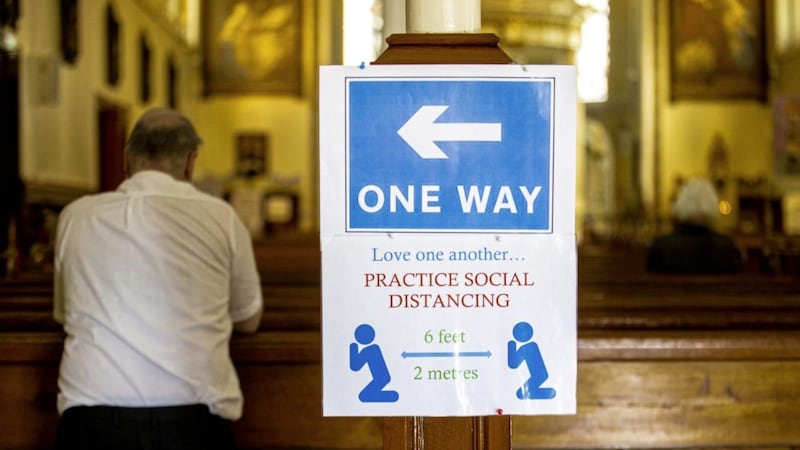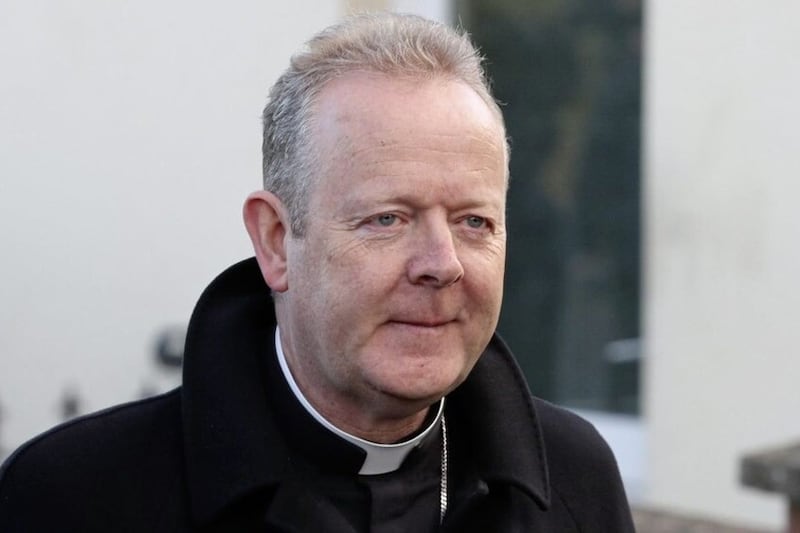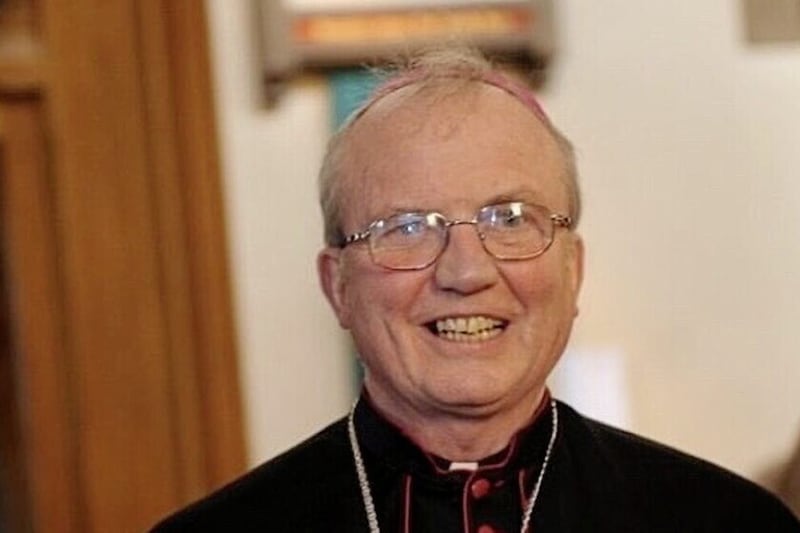AS we face an uncertain future in civil and Church life, we are called together each week to learn from how Jesus ministers and to see what the core elements of our Church ministry are, however the post-pandemic future may develop.
When we have glimpsed how we need to reorientate our proclamation, we can enter the Lenten journey, asking that the Lord will remake us through penance, prayer and almsgiving.
Firstly, we see from Jesus that service is never merely a job.
We read in St Mark 1 of how Jesus went to Peter's family home, healed Peter's mother-in-law and had something to eat.
That evening, when the Sabbath had ended, he was swamped by crowds of suffering people, individuals tortured in mind and body.
After getting some sleep, he sought time to pray alone - and even then, people were still looking for him. So, he insisted on continuing his ministry, because that was why he had come.
Only a Church that has the commitment of Jesus will have credibility and speak with authority in his name.
Secondly, many of our parishes have worked very hard in response to the pandemic.
As we look forward to the re-opening of all our witness, it is important that we plan for a range of possible futures.
But pastoral plans are not merely concerned with sanitising seats or ensuring social distancing so that the regulars are reassured. That is important to facilitate Jesus' mission to the outsiders.
The Gospel tells us that we need to begin by asking what will be tormenting the people to whom Jesus wants to minister today.
If we focus our planning on those who always came, we may have numbers in Church but risk having little credibility as authentic witnesses to Jesus, who was concerned with the power of integrity and not merely with developing his slice of the religious market.
We will not inspire young people to dedicate their lives to the service of the self-sacrificing generosity of Jesus.
As with the great founders of radical religious orders and movements in Church history who are remembered for their prophetic work, our credibility today will be measured by the level of our crazy generosity in Jesus' service.
When we canonise any political agenda, we risk selling our souls for an earthbound cause
When we give ourselves to Christ's service, our comfort ceases to be relevant, for he will ask us to do many uncomfortable things as a sign that grace is at work in our day.
Thirdly, Jesus engaged with the people who were in front of him. He did not choose them.
We face many painful situations in our diocese and country. That is why I am amazed at the number of social media posts that I get which are passionate about the outcome of the US elections.
I don't doubt that there are many people who are interested in US politics. But Christians on this island are called to deal with the realities that we face here, not wasting energy in taking sides in a political soap opera 3,000 miles away.
When we canonise any political agenda, we risk selling our souls for an earthbound cause.
During the awful years of the Troubles here, Church leadership sought to articulate concerns without being conscripted into taking sides in a bitter war.
When the divine voice of Christ is hijacked by a worldly movement, we have lost our ability to witness in Jesus' name.
When we espouse the political agenda of a particular leader, we forget that Jesus resisted the temptation to acquire political power by compromising the Gospel.
Jesus has a radical message for every generation. And how does he sustain his ministry, in face the temptations to take an easier route?
He makes time for communion with his Father in prayer. Christianity has a political impact on how we run society, but it is always based on a divine manifesto and not on human power games.
It is nourished by prayer, sacraments and grace and not by testosterone. It shows itself in hearts that are full of service and never puffed up with arrogance.
As Job writes, life is tough for most people much of the time. That is the messy reality that Jesus faced and that he asks his followers to engage with today.
Prayer is not a cosy escape from the messy world outside. The prayer and sacramental life of the Church are where we are nourished to face the harsh realities of so many lives in Jesus' name.
Jesus revealed God's love and mercy from Galilee to Calvary. It will never be revealed today if Church is too concerned about its own rights or status.
Bishop Donal McKeown has a 'Scripture Saturday' series of videos which present the Gospel "in brief and easy to understand snippets".
The videos, which are part of the Derry Diocesan Youth programme and generally around five minutes long, can be found here.








